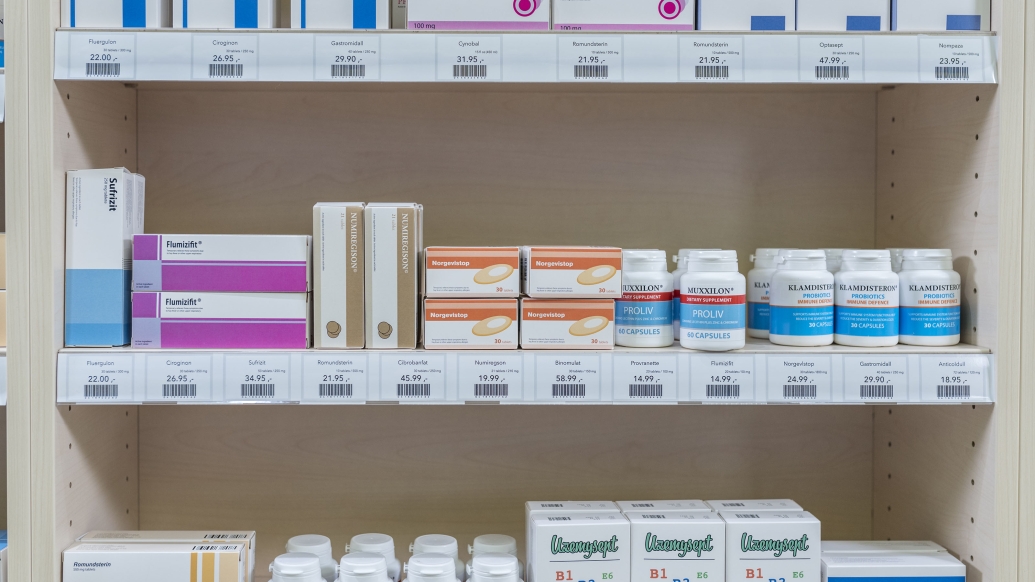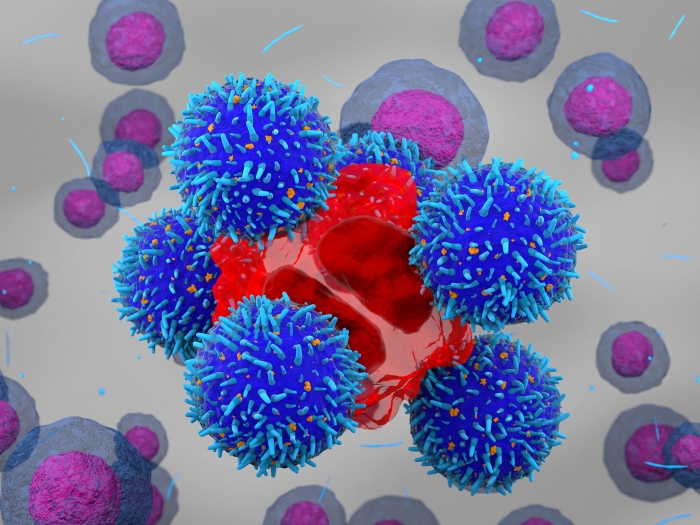Zipline will bring prescriptions directly to patients’ homes in 2024
12:10 PM
Author |

ANN ARBOR — Michigan Medicine will deploy Zipline’s new home delivery service to bring prescriptions to hundreds of thousands of patients around Washtenaw County beginning in 2024.
The new home delivery service will use Zipline’s next-generation platform, which uses autonomous, electric drones to make fast, extremely quiet, ultraprecise deliveries to rural, suburban and even dense urban areas across the region. Zipline’s home delivery service can deliver to areas as small as a patio table, is expected to deliver up to seven times as fast as traditional automobile delivery, completing 10-mile deliveries in about 10 minutes.
This partnership is a key element of Michigan Medicine’s work to significantly expand patient access to its specialty pharmacy services, which cares for patients with complex and rare diseases. Working with Zipline, Michigan plans to more than double the number of prescriptions it fills each year through its existing in-house pharmacy, providing stellar patient experience and helping patients get high-quality, affordable pharmacy care.
“By deploying Zipline we are able to make deliveries faster than ever before, saving time for both patients and our medical workers, enabling faster, affordable pharmacy care that leads to better patient outcomes,” said Marschall S. Runge, M.D., Ph.D., CEO of Michigan Medicine, dean of the University of Michigan Medical School and executive vice president of medical affairs for the University of Michigan. ”We are always looking for innovative, sustainable improvements to serve our patients. We’re thrilled to soon provide the next frontier of care to our patients with Zipline.”
Michigan Medicine will be among the first organizations to use Zipline’s next generation platform, which is nearly inaudible and designed to sound like the wind rustling leaves. Zips can fly and deliver autonomously day or night and through all kinds of weather.
Zipline has an extensive track record of safely and securely delivering products via drone and is the world’s largest commercial autonomous delivery system with more than 40 million commercial autonomous miles flown and more than 540,000 deliveries completed. Zipline uses a robust safety system for each flight that includes strategic route design, redundant flight critical systems, and more than 500 safety checks before each flight.
Zipline’s slim dual-purpose docks, chargers and loading portals will integrate into Michigan Medicine’s specialty care pharmacy in Dexter, which is slated to open later this year. With a 10 mile service radius per dock or up to 24 miles one way, and several docks being installed across the region, the P2 Zips will be capable of delivering the many prescriptions that Michigan Medicine fills and processes each day.
Unlike car and truck deliveries today, Michigan Medicine patients and patient care teams also will be able to track their packages in real-time, and know the delivery time down to seconds using the Zipline app or website.
“Together with Michigan Medicine we are improving the health care experience by bringing prescriptions and medical needs right to patients’ doorsteps. With Zipline, getting prescriptions will be faster, more convenient and more sustainable than ever before,” said Keller Rinaudo Cliffton, CEO and co-founder of Zipline.
“Once live, our patients will be offered the option to receive their home delivery via drone, or continue receiving packages via traditional vehicles. Zipline’s technology is also smart enough to identify addresses as eligible or not based on trees, distance, and other potential real world challenges. We look forward to working with a company who is as committed to and innovative in their approach to serving the community’s health care needs as we are.” said Dana Habers, M.P.H., chief innovation officer for Michigan Medicine and chief operating officer for pharmacy.
“This is an opportunity to not only have a positive impact on the environment, but also results in quicker service for our patients, helping make sure they have their prescription in hand when they need it,” Habers said.
Zipline is the world leader in instant delivery, with more than 540,000 commercial deliveries, primarily to hospitals and health facilities with its first platform. To date, Zipline operates on three continents, has delivered more than 5 million items, and completes a delivery every 90 seconds. Several studies have measured the impact of Zipline’s operations including a study by researchers from the University of Pennsylvania, which found an 88% reduction in Rwanda of in-hospital maternal deaths due to postpartum hemorrhage, as a result of Zipline’s logistics and delivery system. A study published in The Lancet last year found a 67% reduction in blood wastage across Rwanda because of Zipline’s service. Today each Zip flight produces 97% less CO2 emissions than a combustion engine vehicle, according to company estimates.
About Michigan Medicine:
At Michigan Medicine, we advance health to serve Michigan and the world. We pursue excellence every day in our five hospitals, 125 clinics and home care operations that handle more than 2.3 million outpatient visits a year, as well as educate the next generation of physicians, health professionals and scientists in our U-M Medical School.
Michigan Medicine includes the U-M Medical School and University of Michigan Health, which includes the C.S. Mott Children’s Hospital, Von Voigtlander Women’s Hospital, University Hospital, the Frankel Cardiovascular Center, Kellogg Eye Center, University of Michigan Health West and the Rogel Cancer Center. The U-M Medical School is one of the nation's biomedical research powerhouses, with total research funding of more than $500 million.
More information is available at www.med.umich.edu/
About Zipline
Zipline is the global instant logistics leader and is building the first system in the world to serve all people equally. Zipline designs, manufactures and operates the world’s largest autonomous commercial delivery service, which to date completes a delivery every 90 seconds. Zipline is the trusted partner for governments, global brands and leading health care systems. For more information or publication graphics and video, visit FlyZipline.com

Department of Communication at Michigan Medicine
Want top health & research news weekly? Sign up for Health Lab’s newsletters today!





